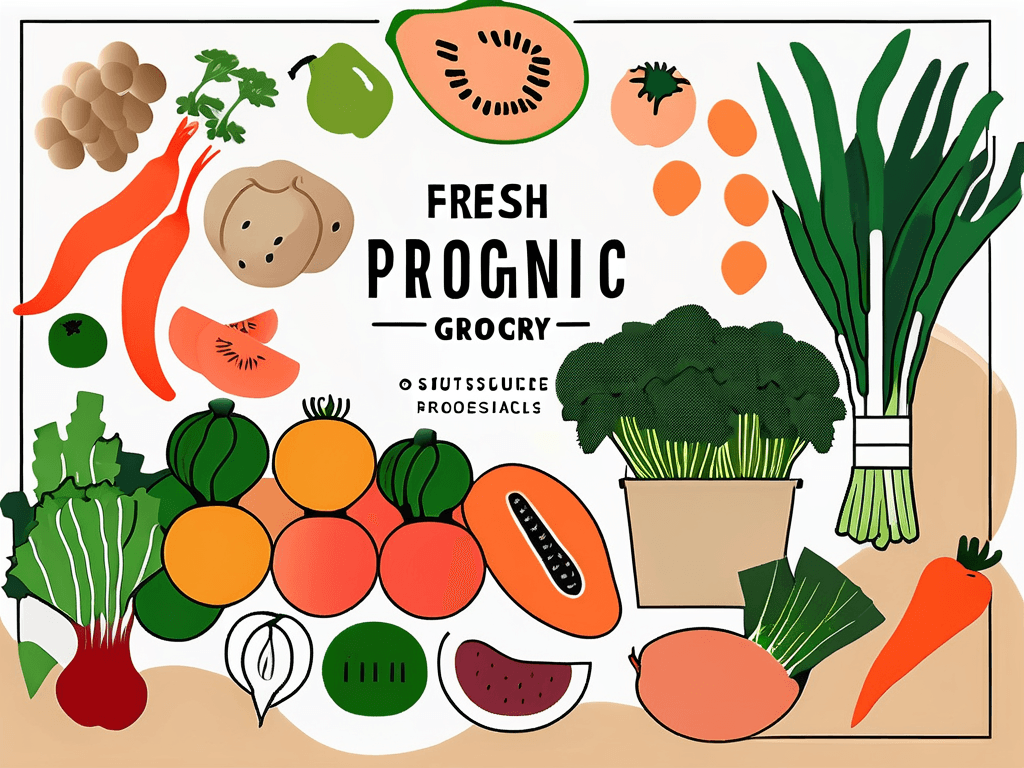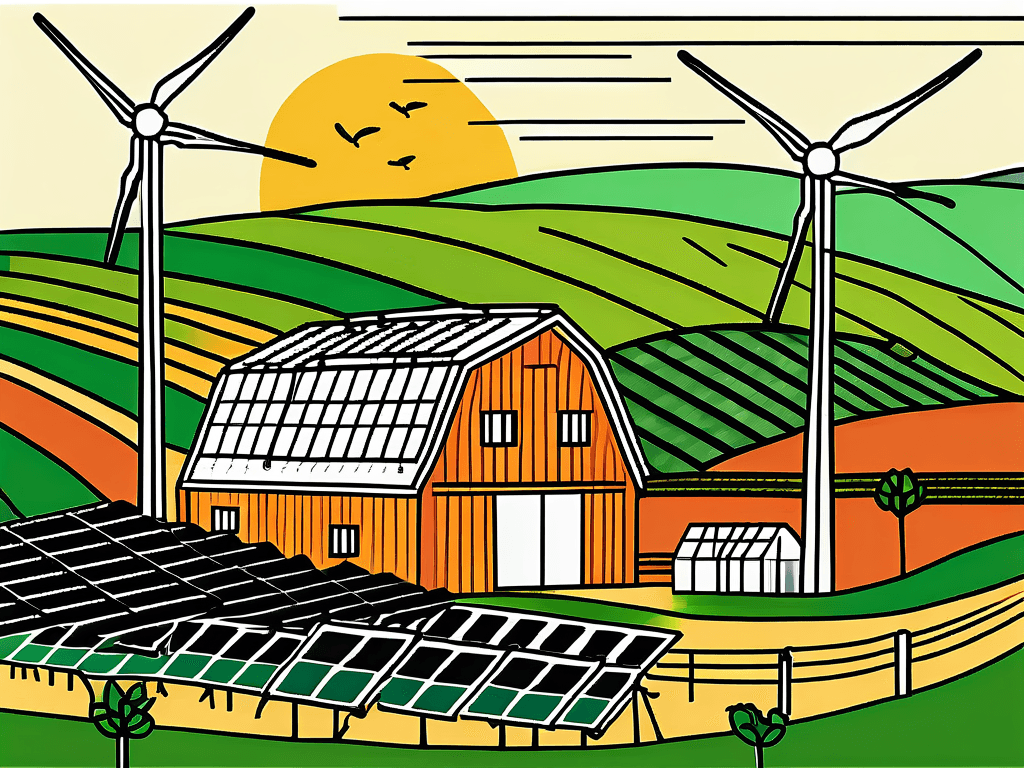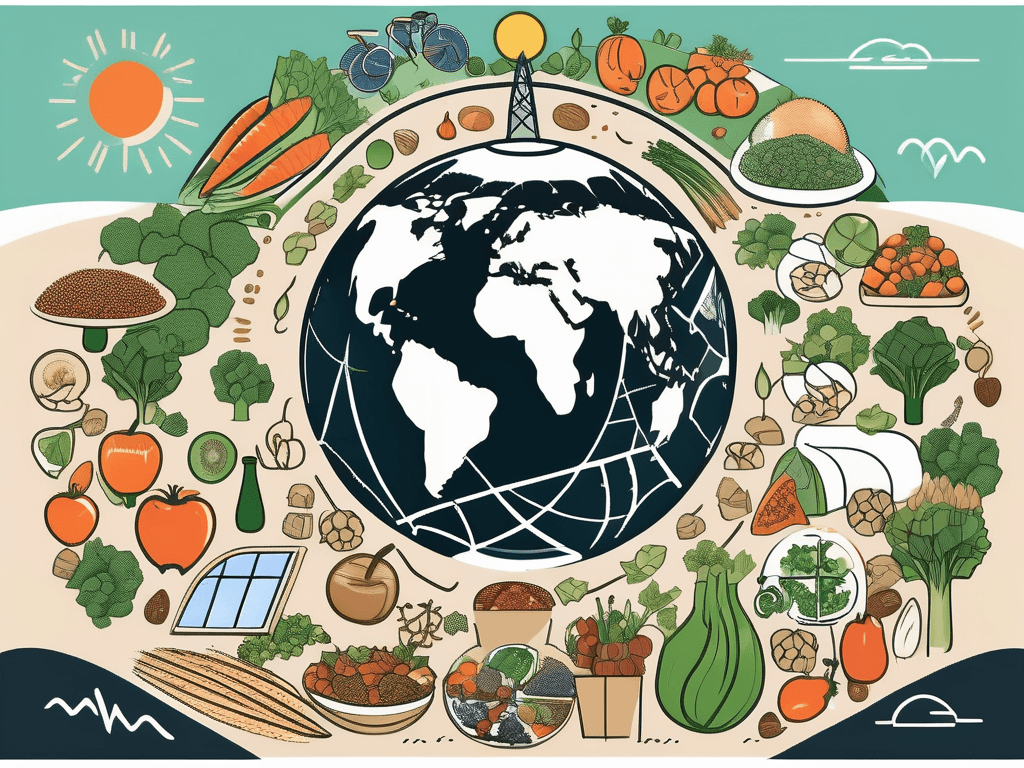Top Sustainability Trends Reshaping the Food Industry
The food industry plays a vital role in shaping the future of sustainability. With increasing concerns about the environment and our health, it's crucial for companies to adopt sustainable practices. In this article, we will explore the top sustainability trends that are reshaping the food industry and driving positive change.
The Impact of Legislation and Consumer Awareness on Food Sustainability
The growing awareness among consumers about the environmental impact of the food industry has led to significant changes in legislation. Governments around the world are enacting stricter regulations to promote sustainable practices. These laws are designed to reduce waste, encourage responsible sourcing of ingredients, and promote transparency in labeling.

How New Laws Are Shaping Sustainable Practices in the Food Industry
One of the key areas where legislation is making an impact is in reducing food waste. Many countries now have laws in place that encourage food businesses to minimize waste and donate surplus food to those in need. This has led to the rise of initiatives such as food banks and food sharing platforms.
For example, in the United States, the Good Samaritan Food Donation Act provides legal protection to businesses that donate food in good faith. This encourages restaurants, grocery stores, and other food establishments to donate excess food instead of throwing it away. By diverting food from landfills and redistributing it to those who are food insecure, this legislation is not only reducing waste but also addressing issues of hunger and food inequality.
Another area where laws are driving change is in sustainable sourcing. Companies are required to disclose information about their supply chains, ensuring that ingredients are sourced ethically and sustainably. This promotes fair trade practices and helps protect biodiversity.
In Europe, for instance, the European Union's Sustainable Food Systems Program has implemented regulations that require food businesses to provide detailed information about the origin and production methods of their ingredients. This transparency empowers consumers to make informed choices and supports the growth of sustainable farming practices.
The Rise of Conscious Consumerism in Food Sustainability
Consumers today are more environmentally conscious than ever before. They are actively seeking out sustainable food options and supporting brands that align with their values. This shift in consumer behavior has forced food businesses to prioritize sustainability in order to stay competitive.
Many consumers are willing to pay a premium for sustainably produced food, and this has created a demand for products with eco-friendly packaging, organic ingredients, and fair trade certifications. Companies that can meet these demands are able to attract a loyal customer base and drive positive change in the industry.
Furthermore, the rise of social media and online platforms has amplified the impact of conscious consumerism. Consumers now have the ability to share their experiences and opinions about sustainable food products with a global audience. This has created a powerful feedback loop, where companies that prioritize sustainability are rewarded with positive reviews and increased brand reputation.
In conclusion, the combination of legislation and consumer awareness is driving significant changes in the food industry towards sustainability. Stricter regulations are reducing food waste and promoting responsible sourcing, while conscious consumerism is incentivizing businesses to adopt sustainable practices. As consumers continue to prioritize sustainability, it is crucial for businesses to adapt and embrace these changes in order to thrive in the evolving food landscape.
Key Sustainability Trends Transforming the Food Industry
While legislation and consumer awareness are driving change, there are also key sustainability trends that are reshaping the food industry from within. Innovations in food production and packaging, as well as the use of technology, play a crucial role in creating a sustainable future.

Innovations Driving Sustainability in Food Production
Advancements in technology and agricultural practices are enabling more sustainable food production. Vertical farming, for example, allows food to be grown in controlled indoor environments, reducing water usage and eliminating the need for pesticides. This method also minimizes transportation costs and carbon emissions associated with long-distance shipping.
But the innovations don't stop there. In an effort to further reduce the environmental impact of food production, scientists and researchers are exploring the potential of insect farming. Insects, such as crickets and mealworms, are highly efficient at converting feed into protein, requiring significantly less land, water, and feed compared to traditional livestock. This emerging trend has the potential to revolutionize the way we produce and consume protein, making it more sustainable and resource-efficient.
The Future of Sustainable Packaging in the Food Sector
The food industry is also exploring innovative packaging solutions to reduce waste and environmental impact. Biodegradable and compostable packaging materials are being developed, which break down naturally and avoid the pollution caused by traditional plastic packaging. Companies are also experimenting with reusable packaging options, such as refillable containers and packaging made from recycled materials.
But the quest for sustainable packaging doesn't end there. Researchers are now looking into the possibility of using edible packaging made from natural materials, such as seaweed or fruit peels. These edible wrappers not only reduce waste but also provide additional nutrients and flavors to the food, enhancing the overall eating experience.
Furthermore, technology is being used to improve packaging processes, reducing the amount of material required and optimizing logistics to minimize waste. Smart packaging that monitors product freshness and quality is also being developed, extending the shelf life of food and reducing food waste. Imagine a world where every package is not just a container, but a smart, eco-friendly solution that actively contributes to a more sustainable future.
Leveraging Technology for Sustainable Food Practices
Technology plays a crucial role in driving sustainability in the food industry. From farm to fork, innovative solutions are being implemented to reduce waste, increase efficiency, and improve transparency.
One way technology is revolutionizing the food industry is through the use of blockchain. By implementing blockchain technology, companies can create transparent supply chains, allowing consumers to trace the origin of their food and ensuring food safety. This not only builds trust between consumers and food businesses but also enables companies to identify and address any potential issues in the supply chain.
Data analytics is another powerful tool being used to enhance sustainability efforts. By collecting and analyzing data, companies can identify areas for improvement, optimize processes, and reduce waste. For example, by analyzing data on energy consumption, companies can identify opportunities to reduce their carbon footprint and implement energy-efficient practices.
How Tech Solutions Are Revolutionizing Sustainability in Food Businesses
Data analytics also plays a significant role in predicting consumer demand and reducing food waste. By leveraging data, companies can optimize their production and distribution processes, ensuring that the right amount of food is produced and delivered on time. This not only helps in reducing food waste but also ensures that consumers have access to fresh and high-quality food.
Furthermore, analytics can be used to measure and track environmental impact, enabling companies to set targets and monitor progress. By analyzing data on water usage, greenhouse gas emissions, and waste generation, companies can identify areas for improvement and implement more sustainable practices. This data-driven approach allows for continuous improvement and the development of innovative solutions to address environmental challenges.
The Role of Data Analytics in Enhancing Food Sustainability Efforts
Technology is also being used to enhance the traceability of food products. For instance, the Internet of Things (IoT) technology can be used to monitor and track the conditions in which food is stored and transported. This ensures that food remains fresh and safe throughout the supply chain, reducing the risk of spoilage and waste.
Additionally, technology is enabling the development of alternative and sustainable food production methods. Vertical farming, for example, utilizes technology such as LED lighting and hydroponics to grow crops in controlled environments. This method requires less land, water, and pesticides compared to traditional farming, making it a more sustainable option for food production.
In conclusion, technology is revolutionizing sustainability in the food industry. From blockchain to data analytics and IoT, innovative solutions are being implemented to reduce waste, increase efficiency, and improve transparency. By leveraging technology, food businesses can enhance their sustainability efforts and contribute to a more sustainable and resilient food system.
Take the Next Step in Sustainable Supply Chain Management with Responsibly
As you explore the transformative sustainability trends in the food industry, it's clear that understanding and improving your supply chain's sustainability is crucial. Responsibly is your partner in this journey, offering an AI-driven due diligence platform that evaluates suppliers across critical sustainability topics, from human rights to decarbonization. Our comprehensive risk assessments, coupled with data aggregation from third-party databases and direct supplier engagement, equip you with the insights needed for sustainable procurement, risk management, and ESG reporting. Ready to enhance your supply chain's sustainability and unlock new business opportunities? Book a demo with Responsibly today and take a significant step towards a more sustainable future.

